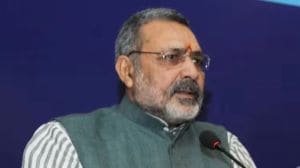Farmers to foot bill for fortified fertilisers: Cabinet
In view of the rising fertiliser subsidy bill, the Government has decided to put the entire burden of additional secondary and micro-nutrients...

In view of the rising fertiliser subsidy bill, the Government has decided to put the entire burden of additional secondary and micro-nutrients, required to help counter the imbalanced fertiliser use in the country, on farmers.
The Cabinet Committee on Economic Affairs (CCEA), which met under the chairmanship of Prime Minister Manmohan Singh on Thursday, approved a policy for encouraging the production and availability of fortified and coated fertilisers.
“Under this arrangement, the cost of fortification will be recovered from the consumers (farmers). This will mean no additional financial burden on the Government,” said Fina-nce Minister P Chidambaram.
Under the policy cleared today, the manufacturers will be allowed to sell the fertilisers coated or fortified with secondary or micro-nutrients up to a maximum of 5 per cent above the notified maximum retail price for all fertilisers under the fertiliser control order, except for zincated urea and boronated SSP. In case of these two, the prices can be up to 10 per cent above the MRP of base fertilisers.
However, the Cabinet decided that the manufacturers will have to limit fortified fertilisers to 20 per cent of their total production. This can, however, be reviewed by the fertiliser and agriculture ministries later.
The decision comes in the backdrop of the recommendations of a Group of Minister (GoM), which had suggested encouraging the use of fertilisers rich in secondary and micro-nutrients to counter the imbalanced use of fertilisers in the country. The GoM had also proposed that the product-based subsidy regime should make way for a nutrient- based subsidy regime.
Other decisions
• Dues adding up to about Rs 347 cr, along with Rs 128-cr interest, to be waived off for Cuba. The decision is aimed at resumption of credit facilities by EXIM bank and Export Credit Guarantee Corporation of India (ECGC) to Cuba.
• 2008-09 to be declared as “Food Safety and Quality Year”.
• Employees’ State Insurance (ESI) Act, 1948 to be amended to enable ESI hospitals and facilities to act as service providers for the National Health Insurance Scheme.
• Setting up an Indian Institute of Corporate Affairs with an outlay of Rs 211 crore during the 11th Plan.





- 01
- 02
- 03
- 04
- 05


























